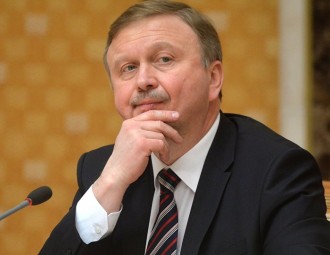Belarus Prime Minister Andrei Kabiakou saw the “growth of incomes” of Belarusians

Belarus Prime Minister considers the overall result of the past five-year period as positive for Belarus.
The PM noted that the GDP growth in 2010-2015 made up 105.9%. This showing has recently worsened “due to well-known reasons, first of all related to our trade and economic partners”, recalled Andrei Kabiakou in an interview to the Belarus One TV channel on 19 June.
“Nevertheless, the overall result was positive. The state fully met its social commitments to its people,” the Prime Minister said.
He emphasized the growth of people's real incomes by 32% in comparison with 2010. Andrei Kabiakou also took note of the positive momentum during the previous five-year period, although it was below the projections.
The Prime Minister admitted that the reason behind it was not only the external circumstances, but also “the issues where not enough efforts were put in,” BelTA quotes him saying.
-
03.01
-
07.10
-
22.09
-
17.08
-
12.08
-
30.09








































